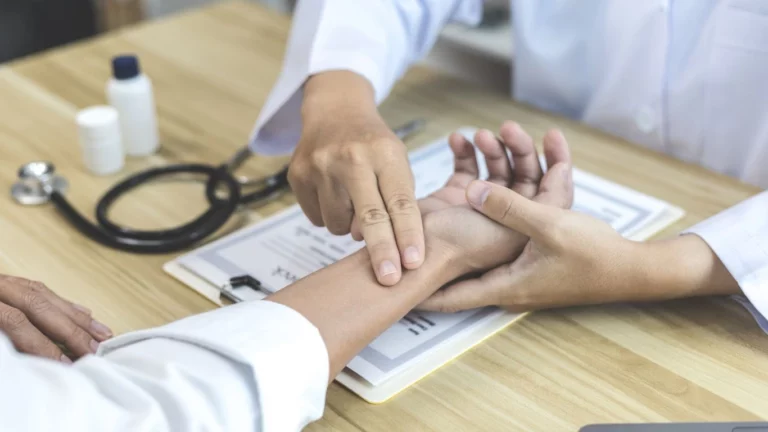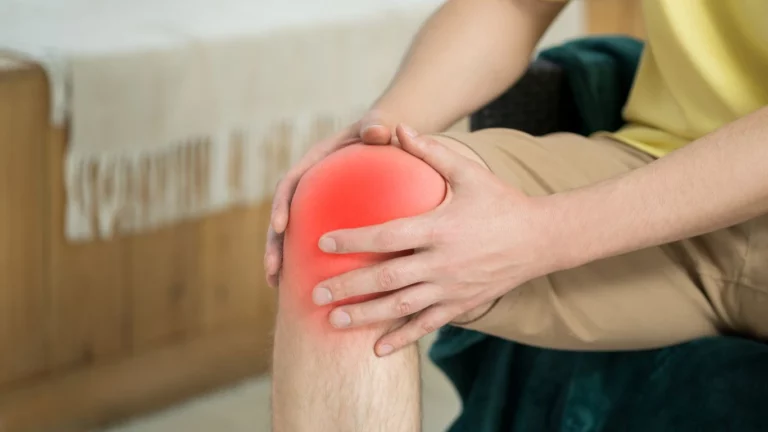How Weight Gain Affects GERD – What You Need to Know
Struggling with GERD (Gastroesophageal Reflux Disease) and wondering if your weight might be making it worse? You’re not alone! In this article, we’re diving into how weight gain can affect GERD and what you can do to manage the symptoms more effectively.
If you’re dealing with GERD, you’ve probably heard about the common triggers like spicy foods, caffeine, and chocolate. But have you considered how your weight might be playing a role in your symptoms? In this guide, we’ll explore the connection between weight gain and GERD and give you practical tips for managing it. 
Why Weight Gain Affects GERD
Gastroesophageal Reflux Disease (GERD) occurs when stomach acid flows back into the esophagus, causing irritation and discomfort. The connection between weight gain and GERD is often linked to increased abdominal pressure, which can push stomach acid up into the esophagus. Here’s how weight gain can worsen GERD symptoms:
- Increased Abdominal Pressure: As you gain weight, especially in the abdominal area, the pressure on your stomach increases. This added pressure can force stomach acid into the esophagus, leading to heartburn and acid reflux.
- Weakened Lower Esophageal Sphincter (LES): Excess weight can weaken the LES, the muscle that acts as a barrier between your stomach and esophagus. When the LES isn’t working properly, acid can more easily escape from your stomach and irritate the esophagus.
- Changes in Digestion: Weight gain, especially if it leads to obesity, can slow down digestion. This slower digestion means food stays in your stomach longer, increasing the chance of acid reflux.

How GERD Symptoms Can Get Worse with Weight Gain
When you gain weight, particularly around the belly area, the added fat can put more pressure on your stomach. This extra pressure can cause your stomach to push up against the diaphragm, which can disrupt the LES. As a result, acid reflux symptoms like heartburn, regurgitation, and chest pain can become more frequent and intense. For some people, this can even lead to complications like esophagitis, a condition where the esophagus becomes inflamed due to frequent acid exposure. Weight gain also makes it harder for the body to clear the acid from the esophagus, which means the acid has more time to cause damage. 
Can Losing Weight Help with GERD?
Absolutely! Losing weight can have a positive effect on managing GERD symptoms. Reducing abdominal fat can alleviate the pressure on your stomach and reduce the likelihood of acid reflux. In fact, several studies show that weight loss can significantly improve GERD symptoms, especially in people who are overweight or obese. Here’s how shedding some pounds can help:
- Decreases Abdominal Pressure: Losing weight, particularly around the belly, reduces the pressure on the stomach, which can help prevent acid reflux.
- Improves LES Function: Weight loss can improve the function of the LES, helping to prevent stomach acid from flowing back into the esophagus.
- Better Digestion: When you lose weight, your digestive system may function more efficiently, reducing the likelihood of acid staying in your stomach for too long.

Tips for Managing GERD and Weight Gain
If you’ve gained weight and noticed that GERD symptoms have worsened, don’t worry! There are several things you can do to manage both weight and GERD:
1. Eat Smaller, More Frequent Meals
Large meals can increase the pressure on your stomach and cause acid reflux. Try eating smaller meals throughout the day instead of three big ones. This can help reduce the strain on your digestive system.
2. Avoid Trigger Foods
Certain foods can trigger GERD symptoms, and some of them are more likely to be present in a diet that causes weight gain. Foods like fatty foods, chocolate, caffeine, and spicy dishes should be consumed in moderation or avoided to help manage GERD.
3. Exercise Regularly
Exercise is one of the best ways to manage weight and GERD. Regular physical activity can help you lose weight and improve digestion, reducing GERD symptoms. However, avoid exercising immediately after meals, as it can exacerbate acid reflux.
4. Maintain a Healthy Weight
The key to managing both weight and GERD is maintaining a healthy weight. You don’t need to aim for extreme weight loss—just losing a few pounds can make a significant difference in alleviating GERD symptoms.
5. Sleep Smart
Elevating your head while sleeping can prevent stomach acid from flowing back into your esophagus. Also, avoid eating right before bed to reduce the chances of reflux during the night.
The Link Between Obesity and GERD
Obesity is strongly linked to GERD, and people who are obese are more likely to experience frequent and severe reflux symptoms. One of the reasons for this is that excess weight, especially around the abdomen, can increase intra-abdominal pressure, pushing stomach acid up into the esophagus. Additionally, obesity can lead to other health problems that exacerbate GERD, like a hiatal hernia, which can further impair the function of the LES.
Conclusion
So, how does weight gain affect GERD? It mainly increases pressure on your stomach, weakens the LES, and slows digestion, making acid reflux symptoms more frequent and severe. But don’t worry—losing weight and making some lifestyle changes can significantly improve your symptoms. If you’re struggling with GERD and weight gain, it’s worth speaking to your doctor about a plan that works for you. By managing your weight and making healthier food choices, you can greatly reduce the impact of GERD on your life.
Appendices
FAQs
- Can losing weight completely cure GERD? While losing weight can significantly improve GERD symptoms, it may not cure it completely. For many, losing weight is a key part of managing GERD, but other treatments might still be necessary.
- Is there a specific diet that helps with GERD? A GERD-friendly diet includes smaller meals, less fat, and fewer acidic foods like tomatoes and citrus. Avoid trigger foods and opt for foods that are easy on the stomach, like whole grains, lean proteins, and non-citrus fruits.
- Does weight gain affect GERD in people with other conditions like diabetes? Yes, weight gain can worsen GERD in people with other conditions, including diabetes. Diabetes can affect stomach emptying, which can increase the chances of acid reflux. Managing weight is important for overall digestive health.
- How long after eating should I wait before exercising if I have GERD? It’s best to wait at least 2-3 hours after eating before exercising to prevent acid reflux. This gives your stomach time to digest the food and reduces the likelihood of reflux.
- Can I take medication for GERD while losing weight? Many GERD medications, such as proton pump inhibitors (PPIs), are safe to take while losing weight. However, it’s important to consult with your doctor to ensure that the medications you’re taking are not interfering with your weight loss efforts.
References
- “Obesity and Gastroesophageal Reflux Disease.” American Journal of Gastroenterology, 2022.
- “The Effect of Weight Loss on GERD Symptoms.” Journal of Clinical Gastroenterology, 2023.
- National Institute of Diabetes and Digestive and Kidney Diseases (NIDDK), “Gastroesophageal Reflux Disease.”
Disclaimer
The information provided in this article is for educational purposes only and does not substitute for professional medical advice. Always consult with your healthcare provider before making any changes to your diet or treatment plan, especially if you are managing GERD or related conditions.

Bianca Nala is a compassionate Nurse Practitioner with a strong background in primary and respiratory care. As a health writer for Healthusias.com, she combines her clinical expertise with a talent for clear, relatable storytelling to help readers better understand their health. Bianca focuses on topics like asthma, COPD, chronic cough, and overall lung health, aiming to simplify complex medical topics without losing accuracy. Whether she’s treating patients or writing articles, Bianca is driven by a single goal: making quality healthcare knowledge accessible to everyone.







